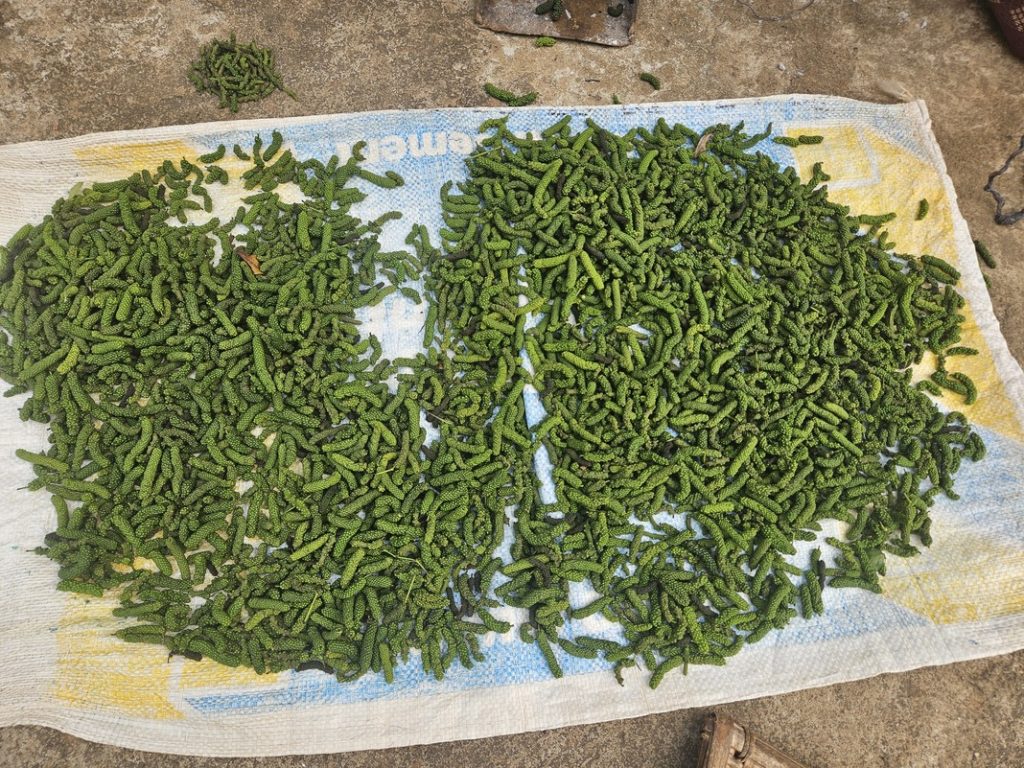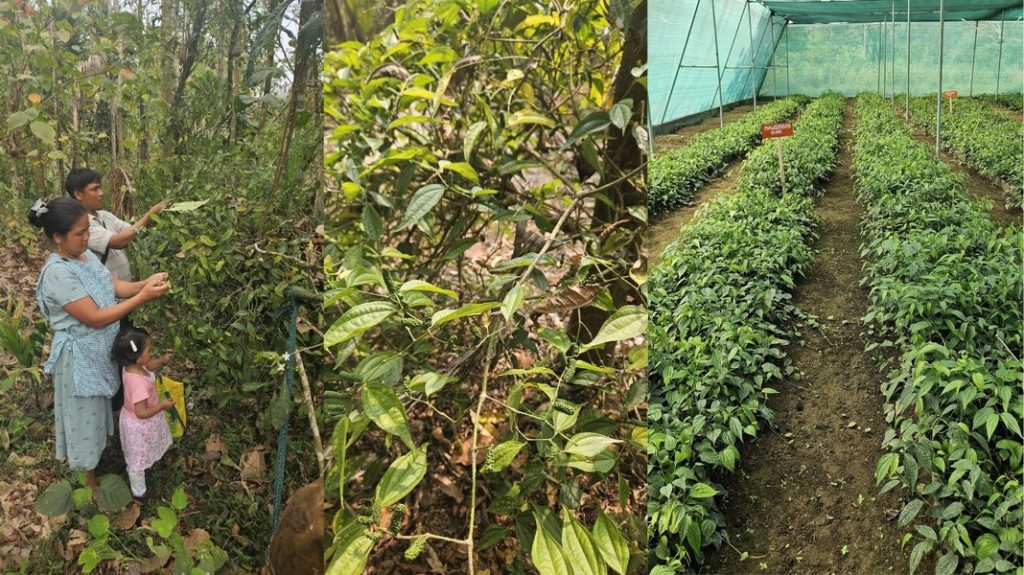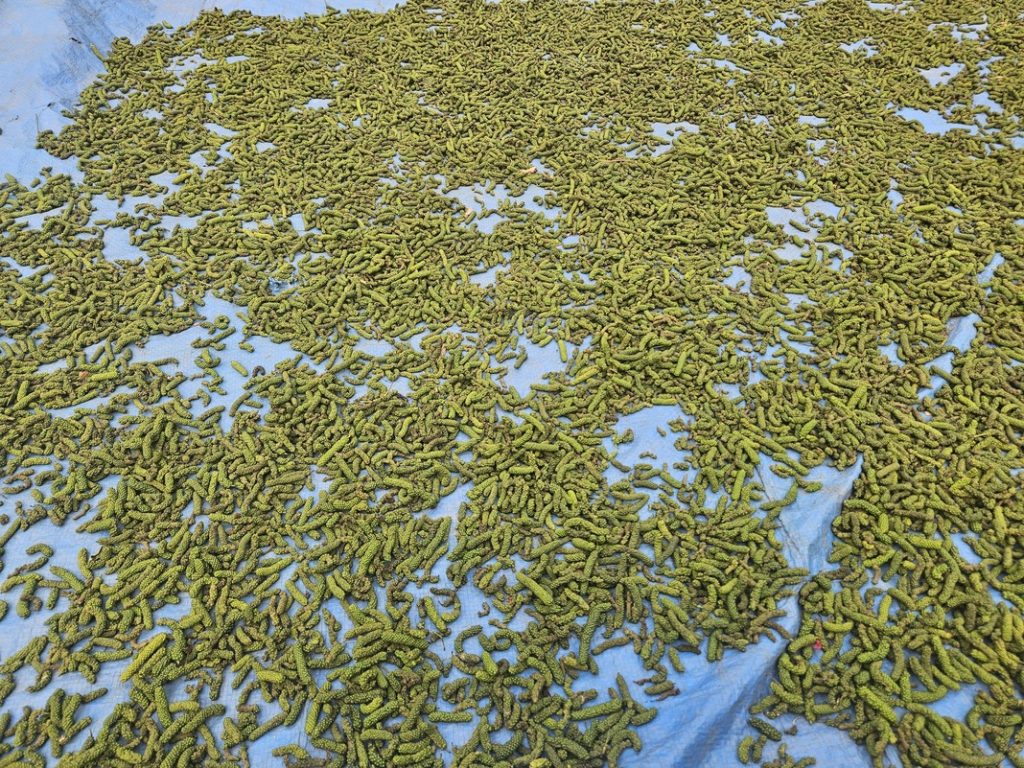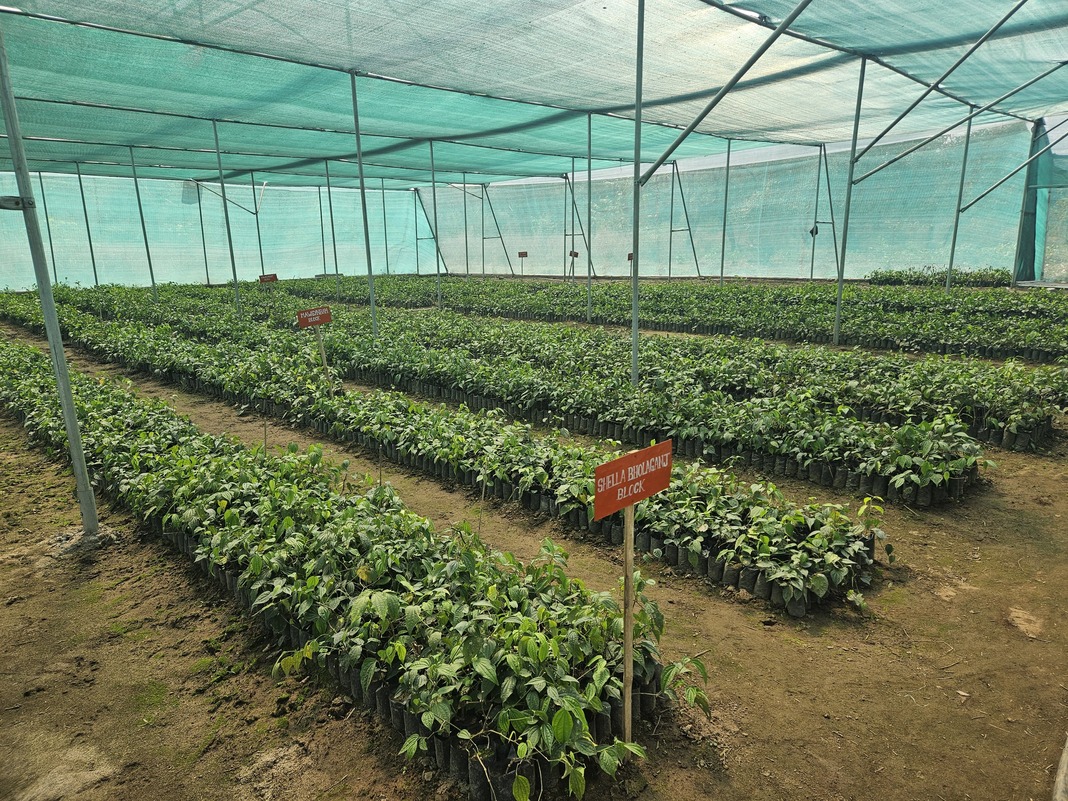ROOPAK GOSWAMI
Shillong, Dec 6: In the lush, mist-kissed hills of Meghalaya, a spice with a fiery reputation has just turned the tables on tradition. For generations, locals have harvested what they believed was a variant of the well-known Piper longum, or long pepper. But now, a groundbreaking discovery by the ICAR-Indian Institute of Spices Research (IISR) reveals that this “wild pepper” is no ordinary spice.
A Unique Discovery
The journey to this discovery began in December 2023, with researchers from the ICAR-Indian Institute of Spices Research (IISR) scouring the farms of Kynrang, Pyndenwar, and Mawpud in Meghalaya. Amid the dense foliage of these villages, they found a pepper vine with characteristics that defied conventional classification. The study was initiated by Meghalaya Farmers’ (Empowerment) Commission(MFEC).
Unlike the familiar Piper longum, a shrubby plant with upright growth, this vine, now christened Piper peepuloides, climbs elegantly, bearing distinct leaf and fruit structures. Researchers, led by Dr. Shivakumar M.S. and Dr. Maneesha S.R., confirmed the species’ uniqueness after rigorous morphological studies and biochemical tests using advanced techniques like Gas Chromatography-Mass Spectrometry (GC-MS) and High-Performance Liquid Chromatography (HPLC).

To confirm the species’ identity, the plant’s morphological traits were compared with the available literature and digital herbarium resources online. “This comprehensive comparison revealed that the species is distinct from long pepper and is likely Piper peepuloides” the study said.
The pepper’s chemistry told an intriguing story: while Piper longum is known for its piperine content, Piper peepuloides is a reservoir of unique compounds like copaene, beta-caryophyllene, and beta-sesquiphellandrane, all with potent anti-inflammatory, antimicrobial, and therapeutic properties.
Economic and Cultural Significance
Farmers in Meghalaya have long cultivated this pepper, locally referred to as “wild pepper,” which commands a price of ₹800 per kilogram in regional markets. Its popularity stems from its robust flavour and purported medicinal properties, which are deeply rooted in the traditional practices of the Khasi and Jaintia communities. The dried seed powder, often mixed with honey and egg yolk, is a common remedy for severe cough, while the stem and roots are used to treat leprosy.

Experts say the identification of Piper peepuloides opens up new opportunities for Meghalaya. It paves the way for obtaining a Geographical Indication (GI) tag, which would not only protect the pepper’s unique identity but also enhance its market value on a global scale.
Piper peepuloides is also resilient to the climatic and soil conditions of Meghalaya, making it a sustainable crop for the region. Its cultivation could be optimized further through agronomic studies, ensuring higher yields and better quality.
The Road Ahead
To harness the full potential of this discovery, the researchers have recommended a multi-pronged approach. This includes conducting genetic studies to identify superior genotypes, optimizing farming practices, and exploring value-added products like essential oils and nutraceuticals. Additionally, training programs for farmers on advanced cultivation and post-harvest techniques are crucial.
The Meghalaya Farmers’ (Empowerment) Commission has expressed optimism about these findings. They aim to collaborate with research institutions and market players to promote Piper peepuloides as a premium spice and medicinal product.

Advisor & Chairman MFEC B K Sohliya told TME: “Work on this pepper was started by the MFEC in 2021 when a market demand analysis by the MFEC and 1917 iTEAMS( Integrated Technology Enabled Agri Management System) showed an upwardly mobile trend in the demand and price of the crop post COVID. Since then and with the collaboration of the District and Local Research Station & Laboratories, East Khasi Hills, the office of the District Horticulture Officer, East Khasi Hills and South West Khasi Hills, a package of cultivation practices for the crop was developed along with 12 nurseries for the conservation and propagation of the crop” he said.
He further added that till date about 100 farmers across the 2 Districts have benefitted from this initiative and more are expected in the coming years with a proposal by the Commission to the department for launch of an indigenous crop scheme.
A Bright Future for Meghalaya
The discovery of Piper peepuloides is more than just a scientific breakthrough; it is a testament to Meghalaya’s rich biodiversity and traditional knowledge. With proper strategies and investments, this “wild pepper” could become a global sensation, boosting the state’s economy and empowering its farmers.
The world of spices has a new contender, and its name is Piper peepuloides.




